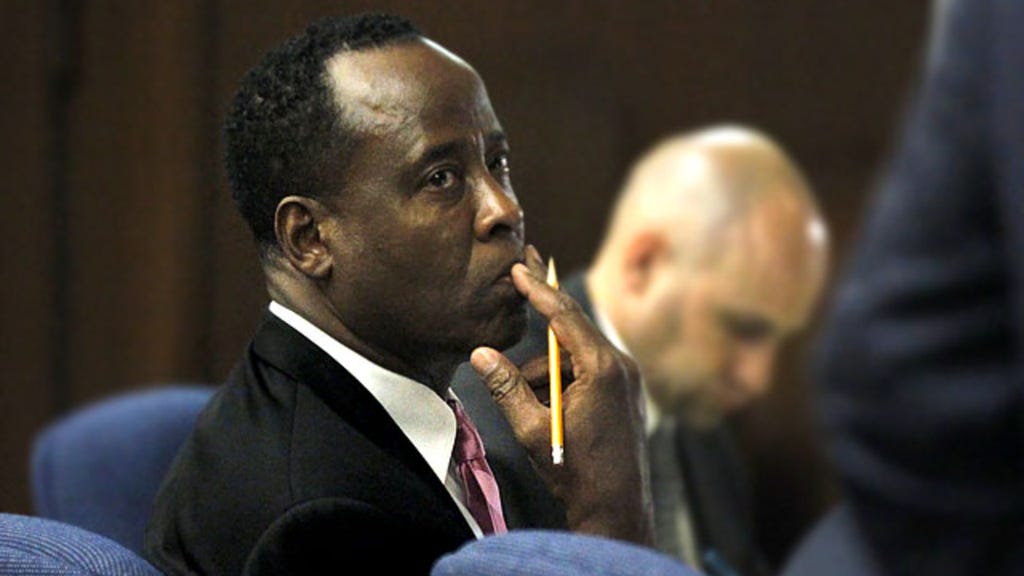Dr. Murray Deflects Blame on Other Jackson Doctor?
Day 10 of the Michael Jackson death trial of Dr. Conrad Murray featured the conclusion of the cardiologist's audio interview with police investigators two days after Jackson's death, with Murray saying Jackson "was basically wasted" following visits to another doctor.
Murray singled out Jackson's dermatologist, Dr. [Arnold] Klein, saying, "[Jackson's] production team had said to me recently that his worst days in the set is when he had gone to Dr. Klein's office, which is about three times a week, and when he came back, he was basically wasted and required at least 24 hours for recovery."
MORE: First Look: Dr. Conrad Murray's Police Interview
Dr. Murray said, "I was not aware of any other medications that he was taking, but I heard that he was seeing a Dr. Klein three times a week in Beverly Hills, and he never disclosed that to me."
At the start of the trial, Murray's defense contended that Dr. Klein had addicted Jackson to the narcotic pain reliever Demerol in the weeks before his death. Earlier witnesses in the trial testified that the entertainer's speech would be slow and slurred following his visits to the dermatology clinic.
MORE: Bombshell Murray Police Recording Played for Jury
Dr. Murray's defense contends that Demerol played a role in Jackson's death, because he was unable to sleep due to withdrawal from the drug. In the audio recording, Murray said that the singer was "showing signs of a withdrawal," but he suspected it was from propofol, which he was trying to wean Jackson off of.
The prosecution is building a case to prove that Dr. Murray gave Jackson a lethal dose of the anesthetic propofol at home, while the defense alleges that Jackson self-administered the lethal dose.
MORE: Jackson Trial: The Startling Slurred Recording
Earlier in the audio recording, Dr. Murray detailed events at UCLA Medical Center following the pronouncement of Jackson's death, specifically the moment that Jackson's mother Katherine was informed of the devastating news: "She broke down, weeping," he said. He then explained that Jackson's children were informed of the news with the help of a social worker: "They cried and cried and cried."
A shocking photo of a nude Jackson on the autopsy table -- his genital area blacked out -- was also shown during the testimony of Dr. Christopher Rogers, the man who performed the procedure on the King of Pop. Dr. Rogers said that he could not definitively state a cause of death on June 26, 2009, and that the 50-year-old Jackson was a "healthy person of his age."
Dr. Rogers also listed various abnormalities he found on Jackson, including enlargement of the prostate gland; the skin pigment disorder vitiligo; a polyp on his colon; an extra rib; arthritis; no atherosclerosis, which is irregular for a man of his age; and an area of irregular of pigmentation at the top of the scalp (likely stemming from the infamous '80s Pepsi commercial in which his hair caught fire, which was referenced in court in relation to this statement).
Dr. Rogers concluded that Jackson's cause of death was "acute propofol intoxication, and the contributing condition was Benzodiazapine effect."
If convicted, the 58-year-old Murray faces a maximum of four years in jail and the loss of his medical license.
Stay tuned to ET for continuing coverage of the Jackson death trial.
